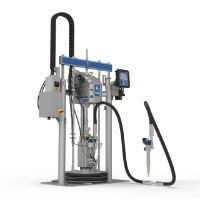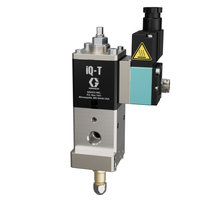Lightweighting in manufacturing processes
The weight of old concepts
Before the auto industry began adapting to more advanced and cost-effective material manufacturing concepts, vehicles were predominantly made out of the same one material – steel. This heavy material not only hinders the performance of vehicles but also contributes to fuel inefficiency. Steel-made automobiles are restricted from having additional features embedded, such as safety devices or integrated emission and electronic systems, because of the considerable weight the steel carries. It is only in the last 25 years that auto manufacturers have gradually shifted towards using advanced materials to replace steel in vehicles.
The advantages of lightweighting
Lightweighting is a modernised concept in the auto industry focused on building less heavy passenger vehicles to achieve maximised performance, fuel efficiency, and handling. Instead of steel, carmakers use lighter, advanced materials such as aluminum or magnesium alloy and carbon fiber composites in their mass-produced passenger cars. These materials provide a range of benefits without compromising safety or durability:
- Increased fuel economy
- Maximised vehicle performance and handling
- Reduced oil consumption and carbon footprint
- High strength-to-weight ratio
- Extreme temperature tolerance
- An improved range of hybrid and electric cars
- The ability to include additional safety features, emission systems, and customised accessories without overloading the vehicle
Assembly equipment
Advanced sealants and adhesives are used in the vehicle assembly process to join dissimilar substrates, either used in conjunction with mechanical fastening processes or to replace them altogether. Placement and performance requirements dictate material chemistries, which in turn dictate dispensing equipment requirements.
Traditional adhesive application equipment utilises a pump that feeds a shot meter or dosing system, which controls and delivers the placement of adhesive. These devices can be quite accurate under controlled conditions but are expensive and difficult to maintain when implemented in the plant, where conditions can vary widely. This performance variability can also lead to issues in subsequent mechanical fastening processes, or compromise the bond itself. Modern systems such as the Graco E-Flo iQ dispense system eliminate the need for a shot meter and provide advanced control to precisely dispense material. Additionally, our systems dispense accurately and efficiently which optimises the material application for more reliable beads and stitches.
Summary
Lightweighting processes can offer abundant material savings, improved safety, and increased vehicle performance. Graco equipment can provide a smooth transition in embedding this concept within your automotive assembling operations. Our systems offer a clean, accurate, and efficient dispense to advance your lightweighting process.
Contact an expert
Related Articles
Comparing 1k Metering & Dispensing Systems
Factors such as shot size, flow rate, material properties, and manufacturing style should be considered when to choosing a 1k dispensing solution.
Automotive structural adhesives application
Accurate bead placement is critical for a properly bonded system. Learn more about how E-Flo iQ delivers sustained in-plant performance, lowers maintenance costs, and drastically reduces system complexity for structural adhesive application.
Anti-flutter application for body shop closures
Designed to protect the exterior of vehicles and reduce noise during operation, anti-flutter applications are an important step in the automotive assembly process.








